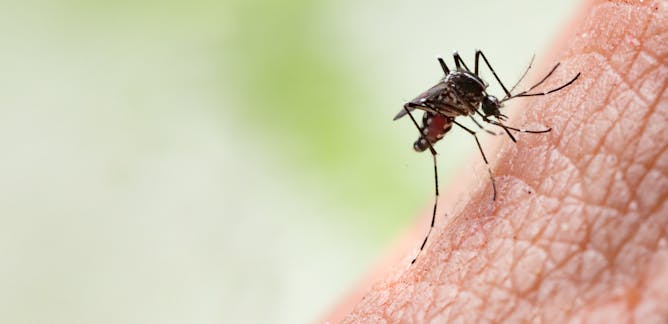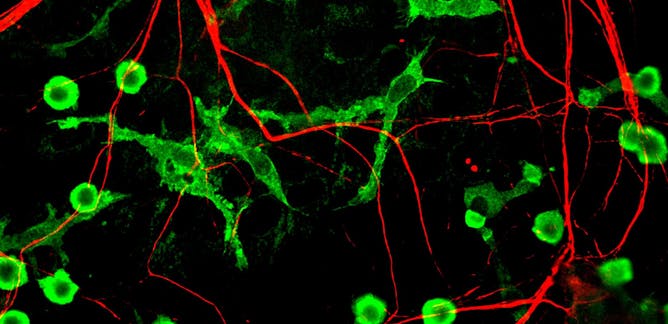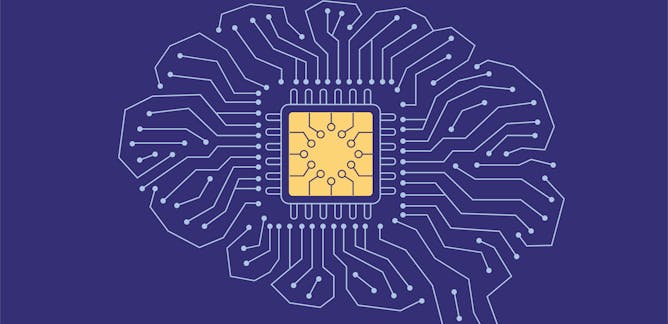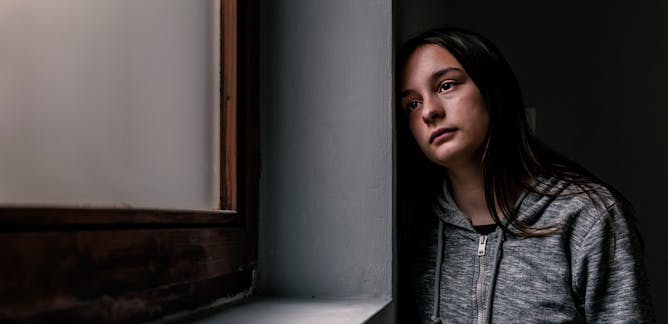|
|
|
|
The U.N. biodiversity conference kicks off today in Montreal, bringing attention to another environmental crisis unfolding during our lifetimes. In one of a series of stories on this conference, wildlife ecologist David Jachowski from Clemson University explains why the focus of his research has been small carnivores, such as weasels, skunks and foxes. Because they use small areas in their relatively short lives and need to adapt to minor habitat changes, he sees
them as better barometers of biodiversity health than so-called charismatic megafauna such as pandas or polar bears.
A subject that has come up many times during our daily news meetings in recent weeks has been artificial intelligence and the astounding pace of development, particularly in public-facing areas such as AI-generated sound, images and text. Computer scientist Hany Farid, who develops forensic techniques to distinguish real images from fake ones, takes us through a tour of the powerful capabilities of the latest text-to-image generators and offers some warnings for
individuals and society overall. “Regulators are going to have to start taking more seriously how these technologies are being weaponized against individuals, societies and democracies,” he writes.
It’s not too surprising that a story on seasonal affective disorder – also known as the winter blues – is one of the most popular science stories of the past week, given how many people it affects. Nutritional neuroscientist Lina Begdache from Binghamton University answers many questions about how circadian rhythms get disrupted when daylight saving time ends and offers some tips on how to fend off seasonal depression. It might motivate you to get outdoors more
often during this time of year to soak in the sun’s available rays.
Also in this week’s science news:
If there’s a subject you’d like our team of science editors to investigate, please reply to this email.
|

|
Martin La Monica
Director of Editorial Projects and Newsletters
|
|

A short-tailed weasel in Yellowstone National Park, Wyoming.
Jacob W. Frank, NPS/Flickr
David Jachowski, Clemson University
Polar bears and wolves may get the glory, but small predators like weasels, foxes and their cousins play outsized ecological roles. And many of these species are declining fast.
|

A synthetic image generated by mimicking real faces, left, and a synthetic face generated from the text prompt ‘a photo of a 50-year-old man with short black hair,’ right.
Hany Farid using StyleGAN2 (left) and DALL-E (right)
Hany Farid, University of California, Berkeley
Text-to-image generators like DALL-E and Stable Diffusion portend a future where anyone with a computer can fake a photograph of just about anything.
|

For those prone to seasonal affective disorder, a shift in the sleep cycle can impact energy levels.
Ben Akiba/E+ via Getty Images
Lina Begdache, Binghamton University, State University of New York
Research shows that young adults and women are particularly susceptible to seasonal affective disorder.
|
|
|

Matan Shelomi, National Taiwan University
A medical myth persists that the B vitamin thiamine is a systemic insect repellent that wards off mosquitoes when taken orally. But scientists have disproven this mistaken belief again and again.
| |

Shane Coffield, NASA; James Randerson, University of California, Irvine
Millions of dollars have gone into California’s forest carbon offset program – with little new carbon storage to show for it, a new study suggests.
|

Kristine Zengeler, University of Virginia
Microglia, immune cells disguised as brain cells, are known as the janitors of the brain. Dialing up their usual duties just enough could provide an avenue to treat neurodegenerative disease.
| |

Anjana Susarla, Michigan State University
A wealth of research on social media shows that COVID-19 misinformation is damaging to public health.
|

Nancy S. Jecker, University of Washington; Andrew Ko, University of Washington
From warfare to entertainment and VR, brain-computer interface development has extended beyond prosthetics for patients with disabilities. Missing is full ethical consideration of the consequences.
| |

Jay Weitzen, UMass Lowell
Pictures and sound, flying through the air to a box in your house? Back in the 1940s, it seemed like a miracle.
|

Toria Herd, Penn State; Sarah A. Font, Penn State
Nearly 1 in 5 US teenagers battle depression. But parents can help by communicating openly, creating a behavior contract and finding low-pressure opportunities to interact with their teen.
| |

Filip Viskupič, South Dakota State University; David Wiltse, South Dakota State University
Nurses who identify as Democrats have a significantly higher likelihood of having their children vaccinated against COVID-19 than those who identify as Republicans.
|
|
|
|
|
-
Richard Grant, University of Miami; Han Li, University of Miami
Miami is often held up as an example of ‘climate gentrification.’ But a closer look finds a bigger driver of flashy new developments in low-income neighborhoods.
-
Veronica Frans, Michigan State University; Jianguo "Jack" Liu, Michigan State University
Governments, scientists and conservation groups are working to protect 30% of Earth’s land and water for nature by 2030. Two scientists explain why scale matters for reaching that goal.
-
Rachel Diamond, Adler University
Many of the preventable pregnancy-related deaths documented by the CDC are directly attributable to failures and barriers in the maternal care system.
|
|
|
| | |
| | |
| |
| |
| |
|
|
|